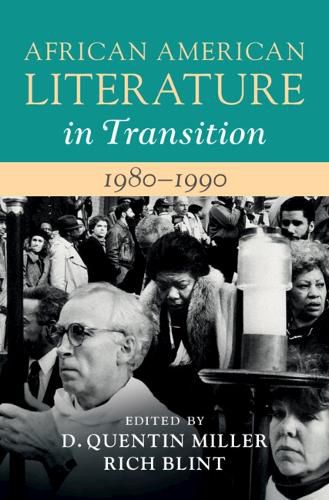Readings Newsletter
Become a Readings Member to make your shopping experience even easier.
Sign in or sign up for free!
You’re not far away from qualifying for FREE standard shipping within Australia
You’ve qualified for FREE standard shipping within Australia
The cart is loading…






African American Literature in Transition, 1980-1990 tracks Black expressive culture in the 1980s as novelists, poets, dramatists, filmmakers, and performers grappled with the contradictory legacies of the civil rights era, and the start of culture wars and policy machinations that would come to characterize the 1990s. The volume is necessarily interdisciplinary and critically promiscuous in its methodologies and objects of study as it reconsiders conventional temporal, spatial, and moral understandings of how African American letters emerged immediately after the movement James Baldwin describes as the ‘latest slave rebellion.’ As such, the question of the state of America’s democratic project as refracted through the literature of the shaping presence of African Americans is one of the guiding concerns of this volume preoccupied with a moment in American literary history still burdened by the legacies of the 1960s, while imagining the contours of an African Americanist future in the new millennium.
$9.00 standard shipping within Australia
FREE standard shipping within Australia for orders over $100.00
Express & International shipping calculated at checkout
African American Literature in Transition, 1980-1990 tracks Black expressive culture in the 1980s as novelists, poets, dramatists, filmmakers, and performers grappled with the contradictory legacies of the civil rights era, and the start of culture wars and policy machinations that would come to characterize the 1990s. The volume is necessarily interdisciplinary and critically promiscuous in its methodologies and objects of study as it reconsiders conventional temporal, spatial, and moral understandings of how African American letters emerged immediately after the movement James Baldwin describes as the ‘latest slave rebellion.’ As such, the question of the state of America’s democratic project as refracted through the literature of the shaping presence of African Americans is one of the guiding concerns of this volume preoccupied with a moment in American literary history still burdened by the legacies of the 1960s, while imagining the contours of an African Americanist future in the new millennium.